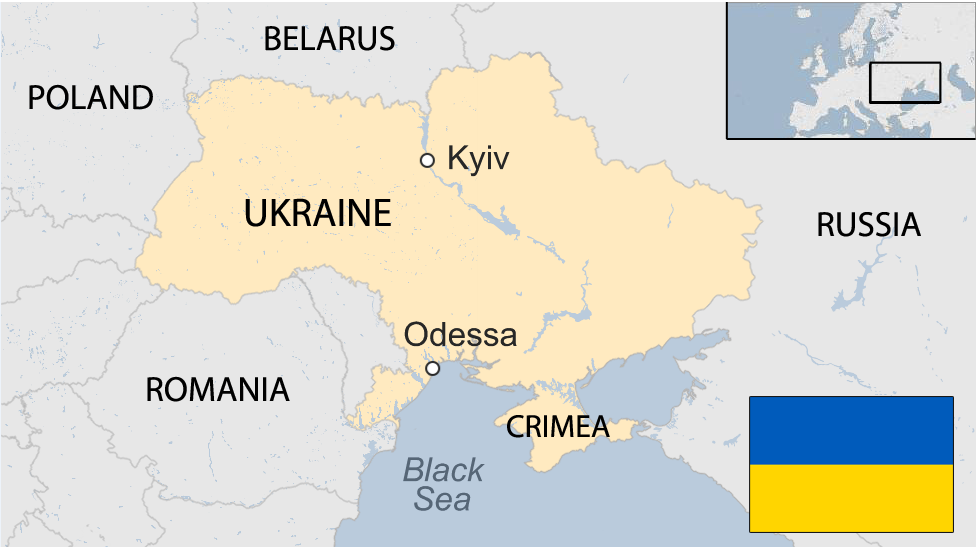Poland country profile
- Published
This page is no longer being updated. It was last updated on 20 January 2025

Poland can trace its roots back over 1,000 years. Positioned at the centre of Europe, there have been periods of independence as well as periods of domination by other countries.
Several million people, half of them Jews, died in World War Two.
A new era began when Poland became an EU member in May 2004, five years after joining Nato and 15 years after the end of communist rule.
It was the birthplace of the former Soviet bloc's first officially recognised independent mass political movement when strikes at the Gdansk shipyard in August 1980 led to agreement with the authorities on the establishment of the Solidarity trade union.
Read more country profiles, external - Profiles by BBC Monitoring, external
REPUBLIC OF POLAND: FACTS
Capital: Warsaw
Area: 312,696 sq km
Population: 38 million
Languages: Polish
Life expectancy: 72 years (men) 80 years (women)
LEADERS
President: Andrzej Duda
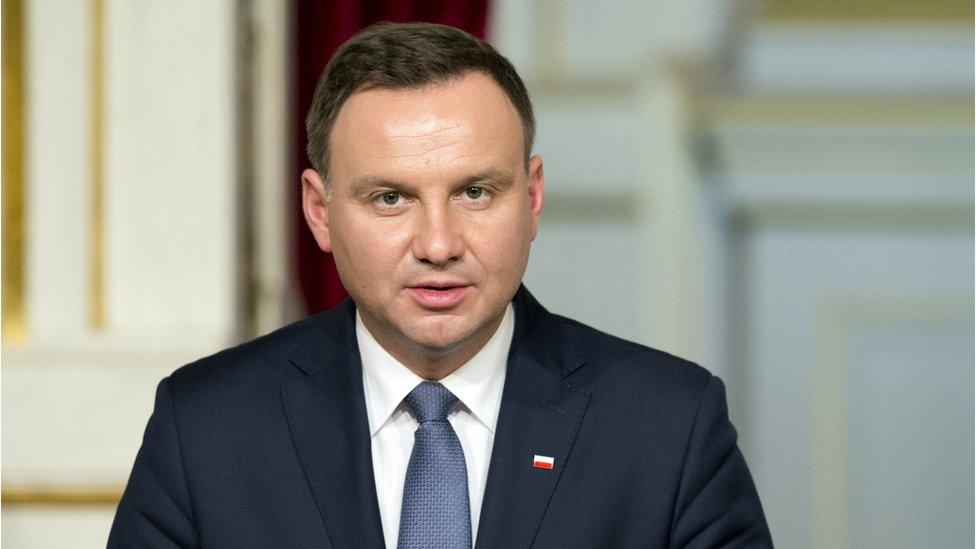
Andrzej Duda of the conservative, Eurosceptic Law and Justice Party, scored a surprise win in the 2015 election, beating the incumbent Bronislaw Komorowski of the centrist Civic Platform in the closest presidential contest in Poland's history.
Born in 1972 and a law lecturer by profession, Mr Duda has been active in conservative politics since the early 2000s, rising to work in the Presidential Chancellery under Lech Kaczynski in 2008-2010.
Prime minister: Donald Tusk
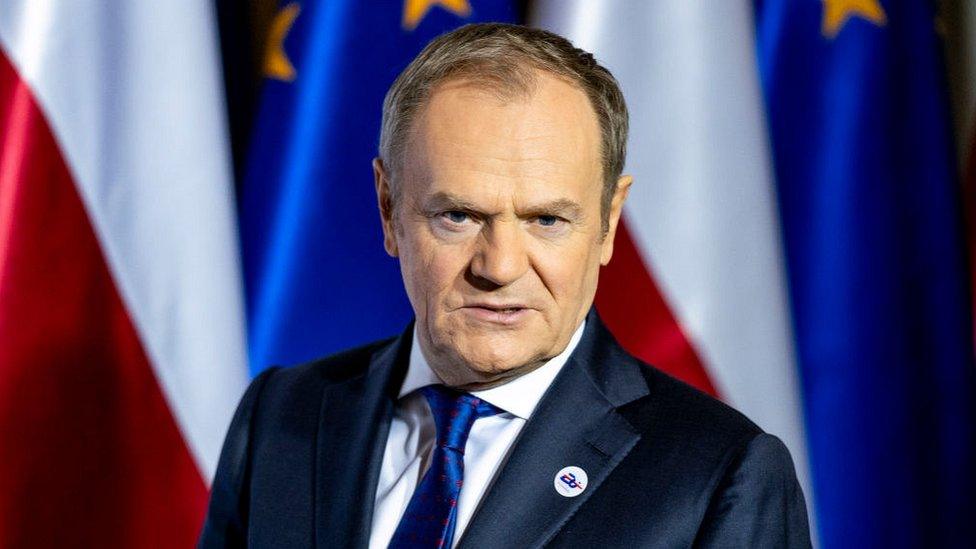
Donald Tusk became prime minster in December 2023, having previously been Poland's prime minister from 2007 to 2014.
In the October 2023 elections, Tusk's Civic Coalition and two other opposition parties, Third Way and New Left, gained 54% of the vote, winning enough seats to allow them to take power.
The incumbent Mateusz Morawiecki, whose ruling right-wing Law and Justice Party (PiS) gained 43% of the votes, but was unable to win the parliamentary support needed to stay in office.
Tusk has worked to strengthen European cooperation, in the wake of Russia's invasion of Ukraine, and has said that "there is no reason for the EU to be weaker than Russia".
On taking office, he visited Kyiv and stated that those who chose neutrality in the war and did not support Ukraine deserved "the darkest place in political hell."
MEDIA
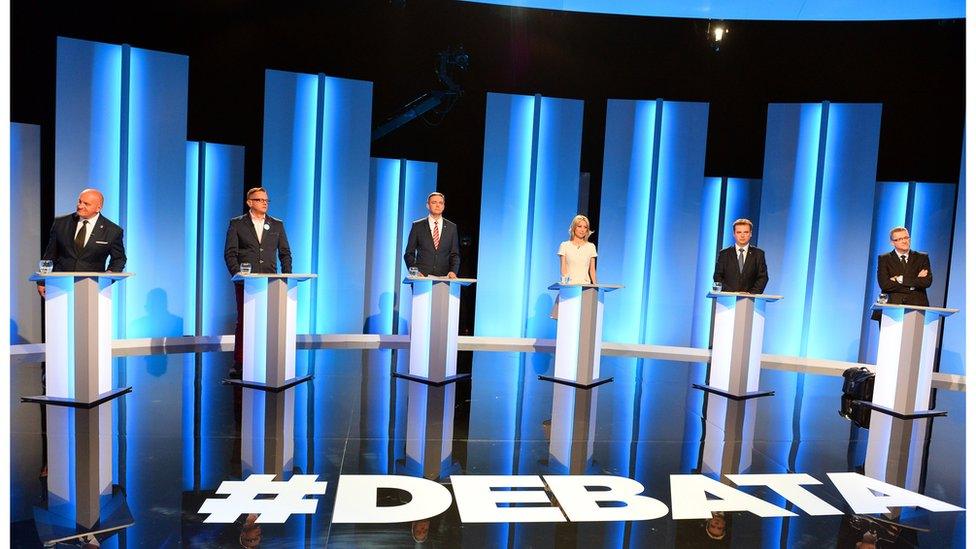
Presidential hopefuls engaging in a TV debate
Poland's broadcasting market is the largest in Eastern and Central Europe. TV is the leading medium.
Many non-state media are owned by foreign companies.
Critics cried foul when the newly-elected conservative Law and Justice government introduced a bill in 2015 to allow ministers to appoint the heads of the public broadcasters TVP and Polish Radio.
Facebook is the leading social network.
Read full media profile
TIMELINE
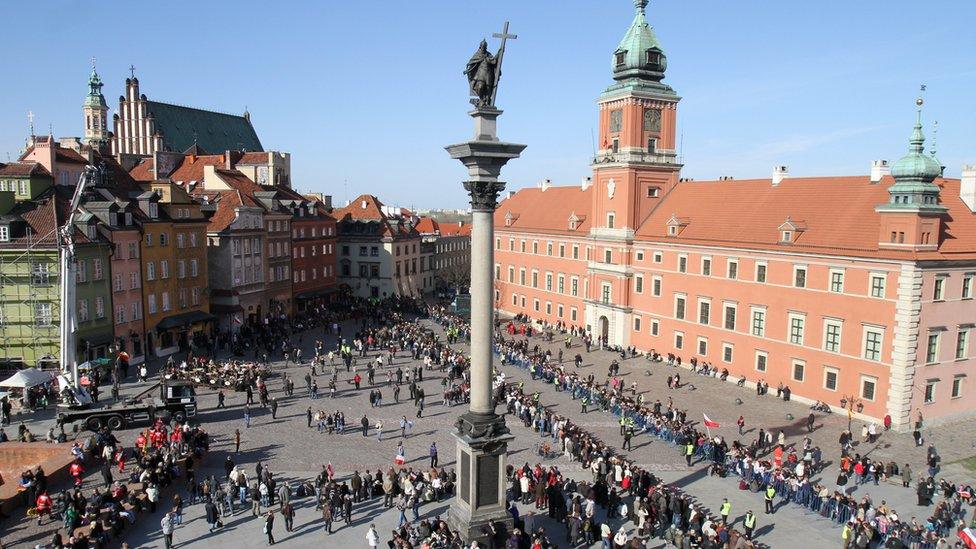
A view of the Royal Castle square in Warsaw
Some key dates in Poland's history:
966 - Duke Mieszko I, the historically recognised founder of the Polish state, adopts Catholic Christianity.
1025 - Boleslaw I proclaims the Kingdom of Poland.
1569 - Poland signs Union of Lublin with the Grand Duchy of Lithuania to establish the Polish-Lithuanian Commonwealth, a major power in Europe.
1683 - Jan III Sobieski leads a Polish-Lithuanian army to defeat an Ottoman army besieging Vienna. The siege is often seen as the highpoint of Ottoman advances into Europe.
1772 - The Commonwealth is subjected to the first of three major partitions by its neighbours Prussia, Russia and Austria following an anti-Russian revolt.
1791-1793 - A programme of political and social reform culminates in the 3 May Constitution in 1791, which promises civil rights to the urban and peasant population of the Commonwealth. Russia invades to prevent liberal change. Prussia also sends in troops, and the two powers carry out a second partition in 1793.
1794-1795 - Reformers lead an armed uprising against the partitioning powers. Following its failure the Commonwealth is finally partitioned among Prussia, Russia and Austria.
1807 - Napoleon creates the Duchy of Warsaw as a client state to rally Polish support for his cause.
1815 - The Congress of Vienna creates a rump Kingdom of Poland, ruled by Russia.
1830-1831 - Military revolt in protest at Russian erosion of the Kingdom's political autonomy and civil liberties.
1863-1864 - Another revolt against Russian rule is defeated and the Kingdom annexed to Russia.
1864-1914 - The Polish national movement in Russia, Prussia and Austria focuses on strengthening the grassroots through education, culture and political parties.
1918 - After more than a century of foreign rule, an independent Polish state is restored after the end of World War One.
1920 - Soviet Red Army offensive repulsed.
1939 - Nazi Germany invades, starting World War Two. Germany and the USSR divide Poland between them and treat Poles with extreme brutality.
1940 - Soviet secret police carry out systematic massacre of about 22,000 Polish army officers, professionals and civil servants mainly in a forest near Katyn. The USSR attributes this crime to the Nazis until acknowledging responsibility in the late 1980s.
1941 - Germans start to build concentration camps in Poland. Their names - Auschwitz, Treblinka, Majdanek - become synonymous with the Holocaust.
1943 - Warsaw ghetto uprising against German attempts to transport the remaining Jewish inhabitants to concentration camps. Resistance lasts nearly four weeks before the ghetto is burned down. The Germans announce the capture of more than 50,000 Jews.
1944 - Polish resistance forces take control of Warsaw in August. The Germans recapture the city in October and burn it to the ground.
1945 - Soviet forces drive German forces from Poland, whose borders are set by Potsdam conference; Poland loses territory to the Soviet Union but gains some from Germany.
1947 - Poland becomes a Communist People's Republic after Soviet-run elections and subsequently joins the Soviet-run Warsaw Pact military alliance.
1955 - Poland joins the Soviet-run Warsaw Pact military alliance.
1956 - More than 50 people killed in rioting in Poznan over demands for greater freedom.
1970 - Food price riots in Gdansk, Gdynia, Elblag, and Szczecin.. The protests are suppressed, 44 people are killed with more than 1,000 injured.
1978 - Karol Wojtyla, Cardinal of Krakow, is elected Pope.
1980 - Strikes at the Lenin Shipyard in Gdansk lead to the emergence of the Solidarity trade union under Lech Walesa.
1981 - Martial law imposed. Many of Solidarity's leaders, including Walesa, are imprisoned.
1983 - Martial law lifted.
1989 - Round-table talks between Solidarity, the Communists and the Catholic Church pave the way for fall of communism in Poland. Partially free elections see landslide win for Solidarity, which helps form coalition government. Tadeusz Mazowiecki becomes Poland's first non-Communist Polish prime minister since 1946.
1990 - Lech Walesa elected president. Market reforms, including large-scale privatisation, are launched.
1991 - First parliamentary elections since fall of communism. Soviet troops start to leave.
1999 - Poland joins Nato, along with Hungary and the Czech Republic.
2004 - Poland is one of 10 new states to join the EU.
2008 Poland agrees in principle to host a controversial US missile defence system.
Poland's last Communist leader, General Wojciech Jaruzelski, goes on trial in connection with the imposition of martial law in 1981.
2010 - President Lech Kaczynski and many other senior officials are killed in an aircraft crash travelling to a ceremony in Russia marking the 70th anniversary of the Katyn massacre during World War Two.
2014 - Poland asks Nato to station 10,000 troops on its territory, as a visible mark of the Alliance's resolve to defend all its members after Russia's seizure of Crimea.
2015 - Poland announces purchase of US Patriot surface-to-air missiles amid rising tension with Russia.
2017 - Nato troops are deployed in the northeast, as part of efforts to enhance security following Russia's annexation of Crimea.
2018 - A new law makes it an offence to ascribe Nazi atrocities in occupied Poland to the Polish state.
2022 - Russia's invasion of Ukraine sees some seven million refugees cross Poland's borders.
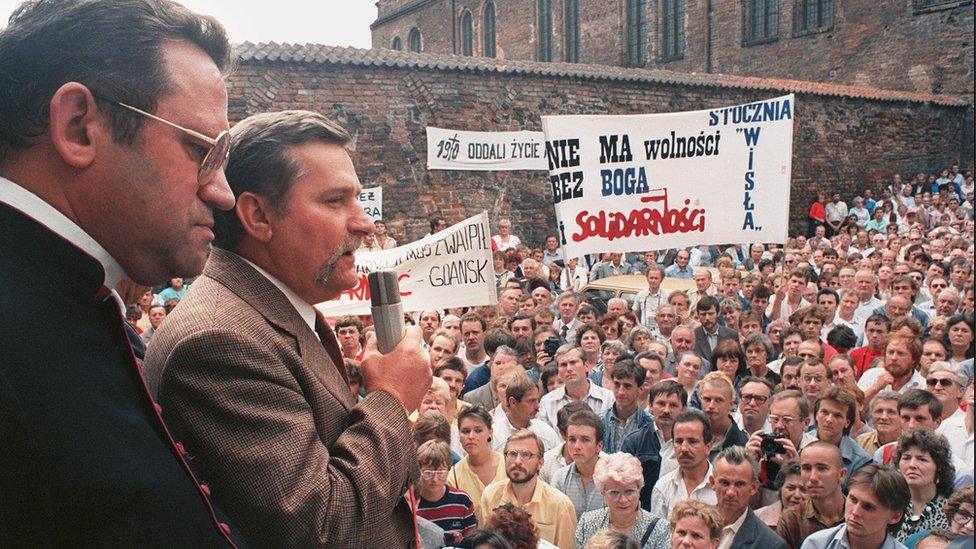
'Solidarnosc' (Solidarity) trade union leader Lech Walesa addresses striking workers at the Gdansk shipyard in 1988
- Published11 December 2023
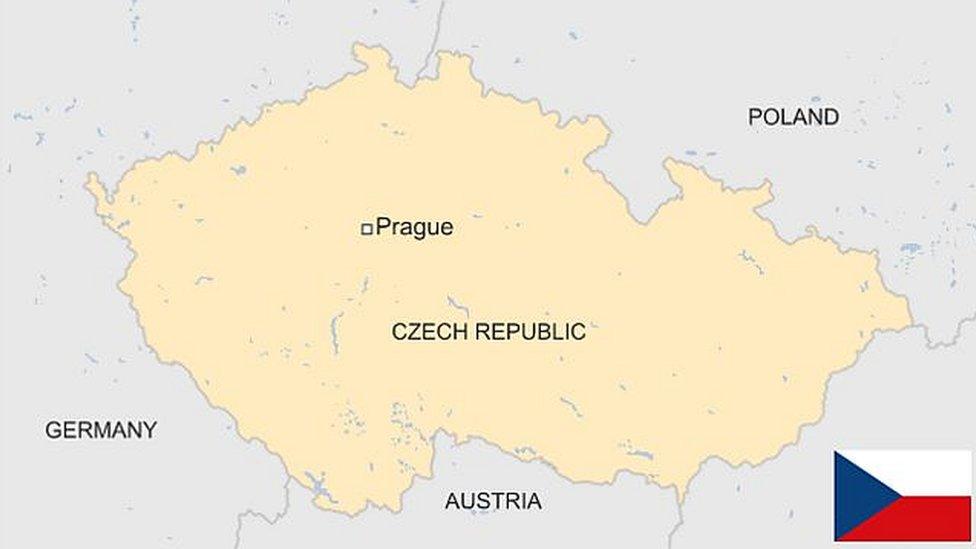
- Published5 June 2024
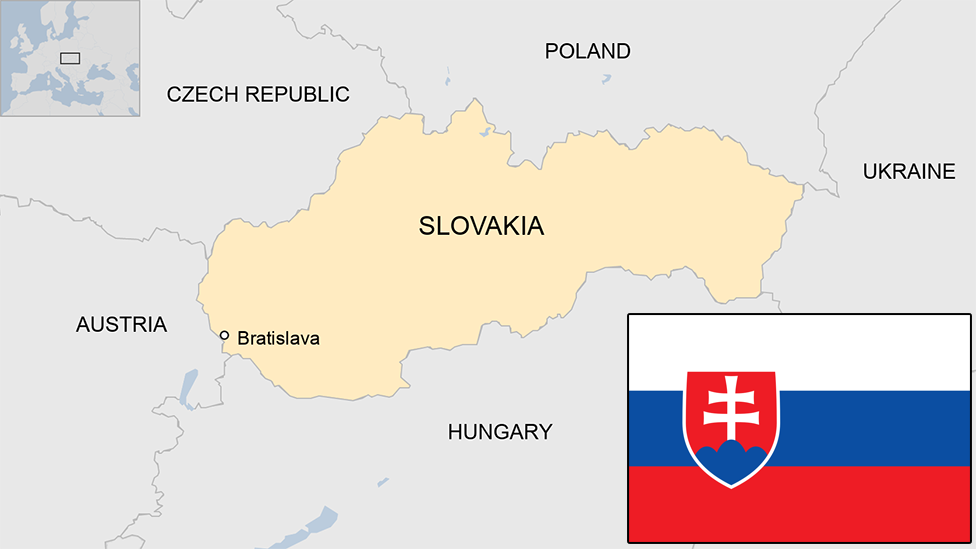
- Published4 September 2023
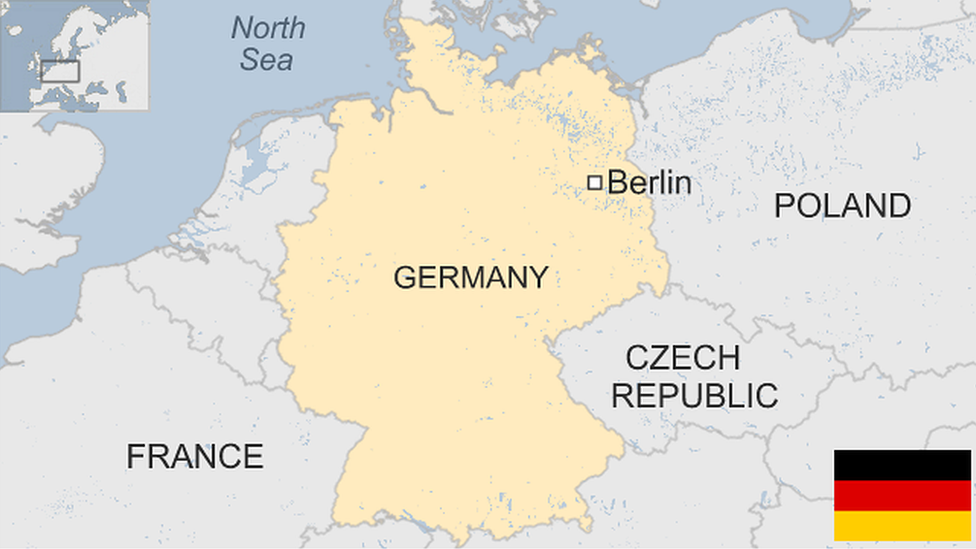
- Published22 August 2023
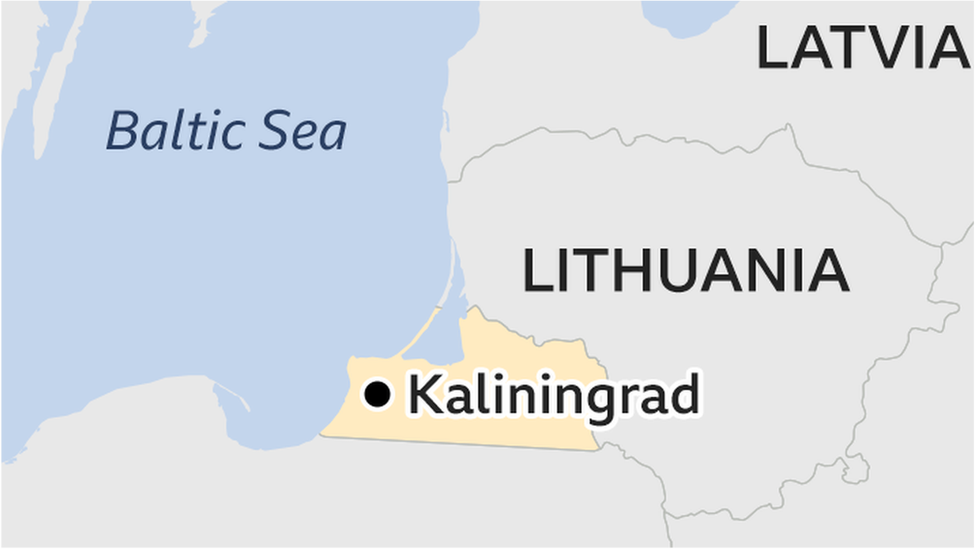
- Published25 November 2024
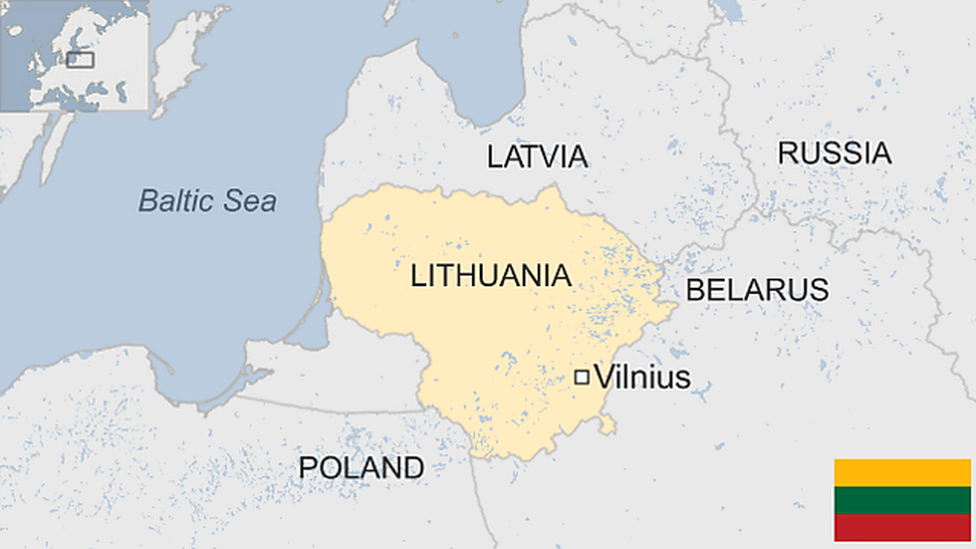
- Published27 January
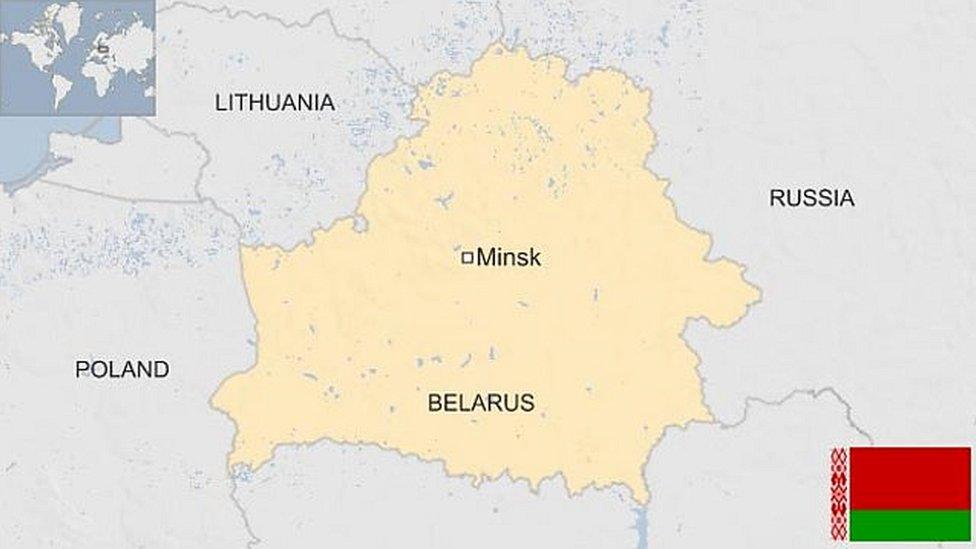
- Published27 January
